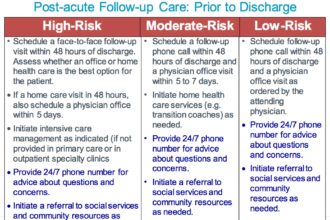(Editor’s Note: Stephen Schimpff has been a member of our Advisory Board since the very beginning. He has given us numerous exclusive posts; here is his latest!)
(Editor’s Note: Stephen Schimpff has been a member of our Advisory Board since the very beginning. He has given us numerous exclusive posts; here is his latest!)
The Democrats’ plans are contained generally in the Affordable Care Act (ACA). The most commented upon action today is that the payments to Medicare providers will be reduced over ten years by $716 billion. These include reductions in hospital reimbursements and reductions in payments for Part C plans (Medicare Advantage.)
These cuts were instituted to free up dollars for other aspects of the ACA. Some would call this “robbing Peter to pay Paul.” But others would argue that it is simple prioritization of the funds available; kudos to those who accepted the responsibility for making the difficult decision. Basically these are “price control” mechanisms but price controls rarely work; providers will make up the difference with more visits, procedures, hospitalizations, etc. The proponents note that the plan only reduces payments to the providers; it does not cut benefits. How reducing provider payments will not ultimately result in less for the beneficiaries is a legitimate question
Physician payments were scheduled to be cut by about 27 percent December 31, 2012. This was based on a formula established in 1997 called the Sustainable Growth Rate. It goes into effect unless Congress explicitly exempts it. Over the years, Congress has repeatedly given such an exemption but only for a short time, allowing themselves to claim that eventually they would enact the cuts and use them to offset budgets. And true to form, Congress – after the election –created another short term exemption. Hardly a satisfactory way to govern.
The ACA recognizes that there is a shortage of primary care physicians (PCP) and that PCPs are under reimbursed. To this end, PCP reimbursements will be increased by about 10% over a few years’ time. Just how this increase corresponds with the 27% reduction or whatever number in the future is unclear.
The ACA also creates some new benefits for enrollees. Chief among them relates to prevention and wellness. Each enrollee is allowed an annual extensive preventive medicine evaluation with no deductibles and no co-pays. Medicare also pays the full cost of screening such as mammography and colonoscopy, cholesterol tests, etc. along with appropriate vaccinations. An interesting sidelight – if a colonoscopy detects a polyp which is removed during the procedure, that converts it to a therapeutic procedure with deductibles and co-pays.
The ACA created the Independent Payment Advisory Board (IPAB) whose job it will be to recommend steps to save dollars within Medicare without reducing benefits or without expecting beneficiaries to pay more – a tall order. They will be nominated by the President, ratified by the Senate, have prolonged terms and their recommendations become effective unless Congress votes them down en bloc, i.e., no cherry picking. Republicans have criticized this plan as allotting too much power in a small group of individuals not accountable to anyone. Democrats counter that the structure allows them to be honest brokers unaffected by competing constituencies.
Altogether, the Democrat’s plan is projected to reduce annual Medicare cost escalation from the currently expected about 4% to about 3.5% per year over the coming decade.
In my next post, the Republicans’ plan – quite different from that of the Democrats.








